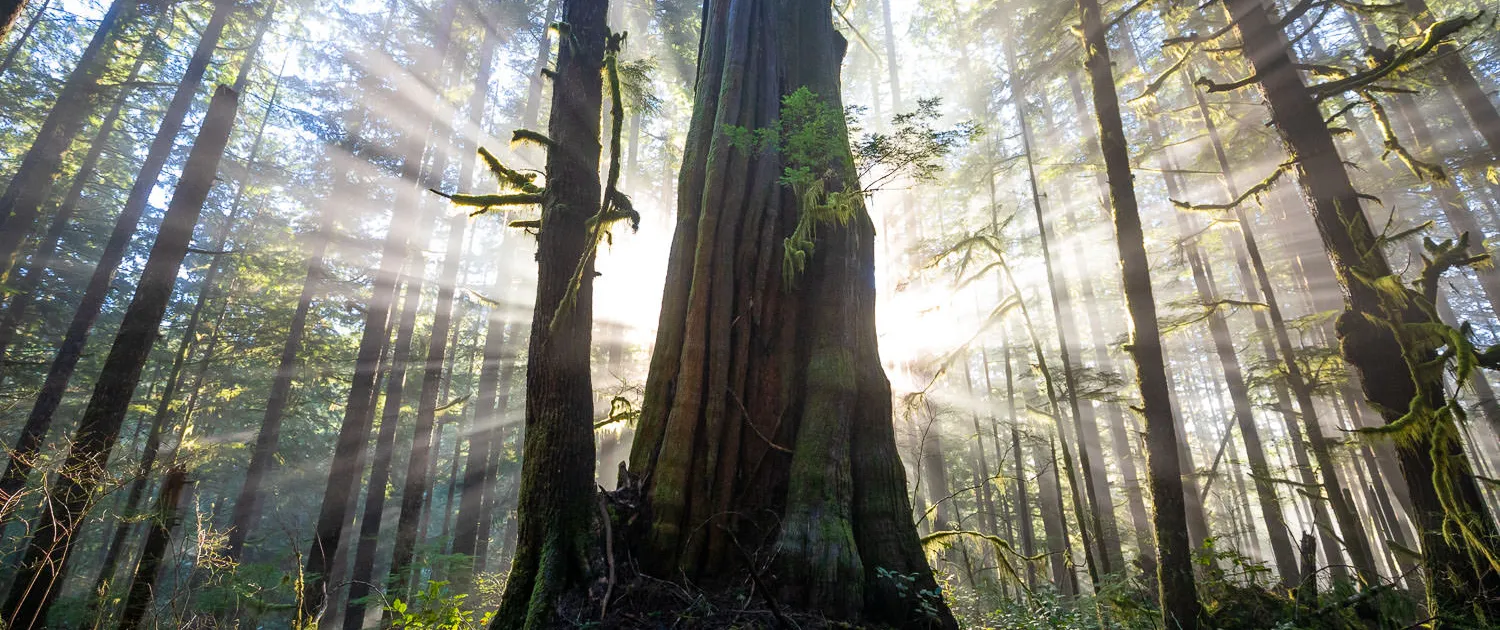 Feb 3 2016
Feb 3 2016Most of B.C.’s Great Bear Rainforest protected
VANCOUVER – A jewel in the crown of British Columbia’s magnificent landscape — the Great Bear Rainforest — has been largely protected from logging in a landmark agreement between First Nations, forest companies, environmental groups and the government, Premier Christy Clark said Monday.
The land-sharing deal 20 years in the making will protect 85 per cent of the largest intact temperate rainforest in the world, located on B.C.’s central coast about 700 kilometres northwest of Vancouver.
The Great Bear Rainforest, stretching from the Discovery Islands northwards to Alaska, is 6.4 million hectares, and more than half the region is covered by ancient forests. The agreement ensures 85 per cent of the forests — 3.1 million hectares — are permanently off limits to logging.
“This is what Vancouver used to look like,” said Clark as images of vast forests were displayed on screens during a news conference at the University of B.C.
“It is proof of what we can do if we decide to find common purpose,” she said.
Clark’s government will introduce legislation this spring that enshrines the deal and includes benefits-sharing agreements with area First Nations.
Twenty six First Nations, environmental groups, coastal forest companies and the government reached the agreement after more than a decade of negotiations.
The agreement also ends the commercial grizzly bear hunt and protects habitat for the marbled murrelet, northern goshawk, mountain goat and tailed frog.
Coastal First Nations spokeswoman Chief Marilyn Slett said reaching the pact was not an easy task but the eco-based management pact is the “modern term to describe what we’ve always done. Our leaders understand our well-being is connected to the well-being of our lands and waters.”
Coast Forest Products Association chief executive officer Rick Jeffery said the deal involved complex talks between groups with opposing points of view, but compromise and success was achieved over time.
“It’s unprecedented in the history of our province,” said Jeffery. “It’s a unique solution for a unique area.”
Environmentalist Richard Brooks said 95 per cent of the area was open to logging 20 years ago, but protests, blockades and ensuing negotiations resulted in Monday’s agreement that ensures most of the forests will not be logged.
“Each of us took tremendous risks to step into the unknown and bridge the huge divide,” said Brooks, describing the collaboration. Three environmental groups, Greenpeace, Forest Ethics and Sierra Club of B.C., are part of the deal.
Jens Wieting of the Sierra Club said logging in the remaining part of the forest will be tightly controlled.
“There is certainty for forestry, 15 per cent of the region’s rainforest will remain open for forestry under very stringent logging rules, the most stringent that you can find in North America.”
The area was officially named the Great Bear Rainforest by then-premier Gordon Campbell in 2006. Environmentalists had given the area the name years before that in an effort to protect the central coast from logging.
The area is also home to the kermode or sprit bear and is where nine area First Nations declared bans on bear hunting in their traditional territories.
Wieting said those involved in the agreement realized the region is globally important because there are so few temperate rain forests left on the planet.
“It is larger than the Netherlands or Belgium or Switzerland and it is really a global responsibility to find solutions to protect the ecological integrity and support communities in this region.”
Read more: https://globalnews.ca/news/2489812/most-of-b-c-s-great-bear-rainforest-protected/





